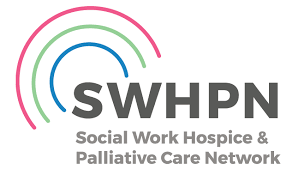The Need to Grieve: How Grief and Bereavement Care in the U.S. Needs to be Retooled
NHPCO and SWHPN Applaud the COVID Memorial Ceremony that Gave America an Opportunity to Grieve as a Nation but Ongoing Support is Critical for National Healing
NHPCO and SWHPN offer insight regarding the way bereavement support in the U.S. can be made more accessible to those struggling with loss and grief and issue a call for organizations to join the list of organizations in support of a National Grief Strategy.
“One of the most profound lasting effects from the coronavirus pandemic will be its impact on how we experience grief,” said NHPCO President and CEO Edo Banach. “The significance of loss in our lives is something hospice and palliative care professionals know well.”
The magnitude of the losses feels even greater now during the pandemic for several reasons. For those who have lost a family member, friend, or colleague to COVID-19, in addition to grieving the actual death, there may also be the loss of not being able to be physically present during the dying process. Many people who know someone is dying have anticipatory grief. For others, there has been the loss of financial stability, or loss of the feeling of physical safety. People are missing the normalcy of human contact. Rituals and milestones like funerals, graduations, and weddings have been postponed or eliminated altogether. We are grieving the loss of the life we knew before the virus.
For frontline health care workers, these changes are compounded by some of the most challenging work of their lives. In addition to dealing with limited access to necessary medical and personal protective equipment, and vaccine access, health care workers are managing massive volumes of sick patients, many who are seriously ill, and are learning how to use technology that connects families to those that are isolated and dying, when they would typically be trying to offer a more human connection.
Saying goodbye to someone who is dying can be challenging and has been made measurably worse by the pandemic. Travel restrictions and facility lockdowns have forced people to remain physically separated. Comfort is now provided through facemasks or technology. COVID-19 has denied family members of those in intensive care, nursing homes, and other congregate care facilities the ability to sit at the bedside, stripping away these cherished final moments. Being present in this manner and completing rituals around death are important to the grieving process. Complicated grief and unresolved issues at death can cast a long shadow over those who survive.
“With over 400,000 dead in the United States alone from COVID-19, we are all grieving together, but we are grieving in a country that doesn’t often talk about death or grief,” said SWHPN Executive Director Jessica Strong. “It is time we change that, time we talk about and build a better understanding of grief, so we can all help each other through this difficult time.”
Grief literacy encompasses the idea that if individuals know more about what grief looks and feels like, we can support each other through the most difficult aspects of grief. By creating a culture of awareness and support around grief, Americans can help each other prevent many of the negative long-term health outcomes associated with grief that goes unaddressed.
Humans are inherently drawn to community. We are not meant to face difficult times alone; we need the support of others who understand. This is why hospices frequently offer bereavement support within their communities beyond people with family members who have received hospice care. We are well positioned to provide this kind of support as we move through this pandemic together. We can work together to create a National Grief Strategy, building compassionate communities that support each other.
Call for National Grief Strategy
Additionally, health care leaders and policy makers must engage in a national conversation toward addressing the new and compounded forms of grief that are emerging because of the COVID-19 pandemic. We have an opportunity to address this crisis by mobilizing resources and education to assist people in navigating the grief that lies ahead, and in studying the effects of such a collective experience. Please add your name to the growing list of people and organizations that support a National Grief Strategy.
-###-
Edo Banach, JD is President and CEO of the National Hospice and Palliative Care Organization (NHPCO) based in Alexandria, Virginia.
Jessica Strong is Executive Director of the Social Work Hospice and Palliative Care Network (SWHPN) based in Pittsburgh, Pennsylvania.
Jon Radulovic
NHPCO
+1 571-412-3973
jradulovic@nhpco.org
Visit us on social media:
Facebook
Twitter
LinkedIn
Legal Disclaimer:
EIN Presswire provides this news content "as is" without warranty of any kind. We do not accept any responsibility or liability for the accuracy, content, images, videos, licenses, completeness, legality, or reliability of the information contained in this article. If you have any complaints or copyright issues related to this article, kindly contact the author above.


